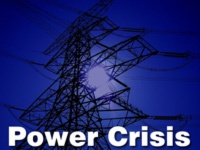Members of the Ghana Electricity Power Association (GEPA) have asked government to partner them to address and provide clear-cut solutions to address the country’s electricity crisis.
Lydia Andrews, Business Manager of Green Tech Global Energy, who made the call on behalf of the association during its inauguration in Accra yesterday, said the private sector has a rich experience in the development, financing, building and operation of power plants.
According to her, the objective of the association is to promote the private sector as lead partners with Government to provide creative solutions in the electric power sector.
Ms Andrews further said Ghana’s private sector has been very active and influential in conceptualizing, developing and building more than 10 of the most recent plants in the country.
Some of these include the 126 megawatts Tema Thermal 1 Power Plant, the 126 megawatts Tema CENIT Thermal Power Plant, the 200 megawatts Shenzhen-Asogli Thermal Power Plant, the 49.5 megawatts Tema Thermal 2 Siemens Power Plant, the 80 megawatts miners reserve plant and a 132 megawatts Takoradi 3 Canadian Power Plant.
She said there were several other projects that were being constructed by the private sector.
However, she mentioned the lack of a credible wholesale off-taker, which is an entity that could buy and pay for the power produced, as a fundamental challenge facing the developers of such power plants.
She noted that the lack of such an off-taker was a disincentive for future investments into power plants by the private sector.
She called for assistance from Government, through the Ministry of Energy, to provide an institutional solution to the bottleneck.
“It is important to note that the industrial sector which is the engine for economic growth, industrialization and job creation cannot survive without adequate electric power. The lack of adequate power to these industries could trigger a crisis of confidence in the economy.”
She stressed the need to accept differentiated tariffs based on the availability of each fuel type and associated costs for generation such as light crude oil, light distillate oil and natural gas.
The differentiated tariff system, she expatiated, will ensure that industry has power all the time, albeit at different costs of generation.
“We all need to understand that even expensive power is better than a situation where there is no power at all.”
Business News of Friday, 29 March 2013
Source: dailyguideghana.com
GEPA solicits government partnership to solve power crisis

Entertainment











